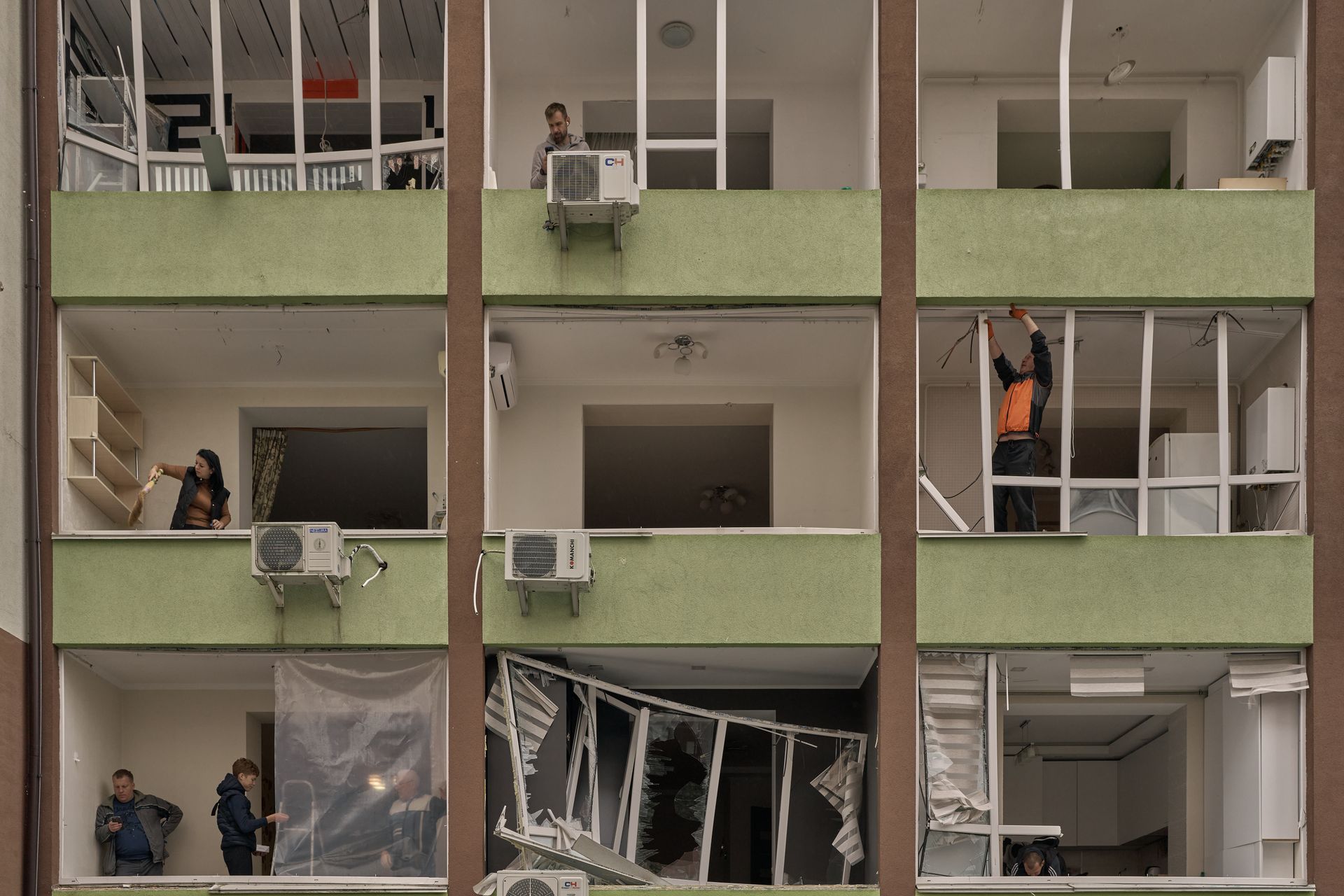After EU pledge, can the Special Tribunal for Aggression for Ukraine bring Putin to The Hague?

Russian President Vladimir Putin listens during a meeting with Kazakh President Kassym-Jomart Tokayev (not pictured) in Dushanbe, Tajikistan, on Oct. 10, 2025. (Contributor / Getty Images)
A day after Russia’s full-scale invasion of Ukraine began in 2022, international law stalwart Phillipe Sands called for the establishment of a special international court to prosecute the highest Kremlin leaders for the conflict.
More than three years later, a version of such a court exists on paper, but it remains unclear when, or even if, Vladimir Putin might be in the dock.
On Monday, Kaja Kallas, the European Union’s foreign policy chief, pledged an initial 10 million euros ($11.5 million) to open the tribunal’s doors.
The court is backed, not by the United Nations as Sands had wanted, but by the Council of Europe (CoE) — a human rights organization set up in the wake of the Second World War and headquartered in Strasbourg. President Volodymyr Zelensky signed off on the establishment of the Special Tribunal for the Crime of Aggression in Ukraine during a ceremony in France in June.
The route from Kyiv to Strasbourg had been a long one, hamstrung by legal technicalities and political interests. And the route from Strasbourg to The Hague — home to the International Criminal Court and where Zelensky has called for the tribunal to be headquartered — remains unclear.
A leadership crime
Sometimes referred to as “the mother of all crimes,” the crime of aggression — the legal term for invading another country — is a crime committed in the highest levels of government. Only a country’s leaders can plan and organize a full-scale invasion.
The tribunal, says Anton Korynevych, ambassador-at-large at the Ukrainian Ministry of Foreign Affairs, will investigate and prosecute the decision-makers, including Russian President Vladimir Putin. “We want the aggressors to feel justice,” he told the Kyiv Independent. He estimates around 20 to 30 people might be prosecuted.
The crime of aggression hasn’t been prosecuted since Nuremberg, the tribunal set up to try Nazi leaders after World War II.

Immune from prosecution
Because aggression is a leadership crime, prosecuting those who commit it runs headlong into a longstanding legal norm: immunity.
Countries have for centuries recognized immunity for heads of state, heads of government, and the foreign ministers. Those individuals, while they remain in office, can only be prosecuted by an international court, according to Kevin Jon Heller, scholar of international law at the University of Copenhagen.
“In an ideal world, this tribunal would have been set up by the United Nations Security Council,” Heller said, as that would have superseded immunity, but wasn’t politically viable. Russia is a permanent member and would veto any proposal.
The International Criminal Court is conducting its own investigation in Ukraine, but for war crimes and crimes against humanity, not for the crime of aggression. The ICC can only prosecute nationals of member states for aggression (unlike war crimes, crimes against humanity, and genocide), a result of political compromise when the court was established.
Russia is not a member.
Instead, the CoE aggression tribunal can investigate those with immunity, including Putin, but cannot issue arrest warrants or start trials for those officials while they remain in office.
The prosecutions of other leaders, however, including military brass, can move forward.
An empty dock?
Unlike most other international criminal tribunals, including the ICC and the ad hoc tribunals established by the Security Council in the 1990s following the Yugoslav Wars and the Rwandan Genocide, the tribunal for Ukraine will allow in absentia trials, proceedings where the defendant is not in custody.
“You have to have trials in absentia or you won’t have any trials at all,” said Mark Ellis, the executive director of the International Bar Association. His organization recently hosted an event together with Ukraine and the Netherlands to discuss the establishment of the tribunal.
Some international law experts, like Heller, are skeptical of in absentia trials. “There is nothing in international law that precludes them, but that doesn’t mean they are sensible,” he says.
Heller points to the Special Tribunal for Lebanon, a U.N.-backed court set up to prosecute those responsible for the 2005 assassination of former Lebanese Prime Minister Rafic Hariri. It has been widely criticized for a price tag of nearly 1 billion dollars to convict just four men in absentia. It shut down in 2023 after running out of funding.
Gabriele Chlevickaite, a researcher in international criminal law at the University of Amsterdam, notes that the tribunal is based on Ukrainian jurisdiction, allowing in absentia trials.
“If Ukraine allows for them domestically, it makes sense that the tribunal can hold them as well,” she says.
A European court for a European conflict
Once it was clear that the U.N. tribunal Sands called for immediately after the invasion was not an option, Ukraine looked closer to home, at the Council of Europe.
The CoE has experience with an international court. It oversees the European Court of Human Rights. That court, however, is not a criminal court and could not prosecute individual defendants — it hears complaints over alleged violations of the European Convention on Human Rights and issues binding judgments against member states. The CoE could, however, together with Ukraine, set up a criminal court for the crime of aggression, as agreed upon by Zelensky in the summer.
“We had this opportunity because of the enlarged partial agreements,” said Andrew Cutting, a spokesperson for the CoE. These agreements allow CoE member states and other countries to officially back the tribunal, provide funding, and supply other support, like judges and prosecutors.

The plan for the tribunal has been endorsed by some 30 countries, including Poland, the Netherlands, Japan, and Canada, but it’s not yet clear how many of those will formally sign on. The United States was a major contributor in the early days, but the Trump administration has since pulled out.
Nor is it known where the funding for the court’s operations, beyond the initial EU investment, will come from.
Zelensky has called for the tribunal to sit in The Hague. While the Netherlands — home to the ICC, other ad hoc courts, and Eurojust — initially offered to host the organization, concrete proposals have not been forthcoming.
An unclear future
The CoE has also set up the Register of Damages, which records claims of losses stemming from the war. The evidence collected will ultimately be transferred to an international claims commission, which is also set up by the CoE. The register has operational financing from backers, but neither mechanism has the funding to begin compensating victims.
Several EU countries also provided supplemental financial support to the ICC for its investigation into Ukraine, and many are providing military support.
Some EU officials feel Ukraine is asking for too much. “Ukraine is going to have to pick one thing,” a senior European diplomat in The Hague who was not authorized to speak to the press told the Kyiv Independent.
The tribunal has no place to call home, no formal backers beyond the EU, and no defendants within reach. Ukrainian officials say that will begin to change soon, with proceedings expected to start in 2026, but diplomats and others involved remain skeptical.
“Putin, (Russian Foreign Minister) Lavrov, they will die in office. They will never be tried,” a senior Dutch official, who was not authorized to speak to the press, said.










